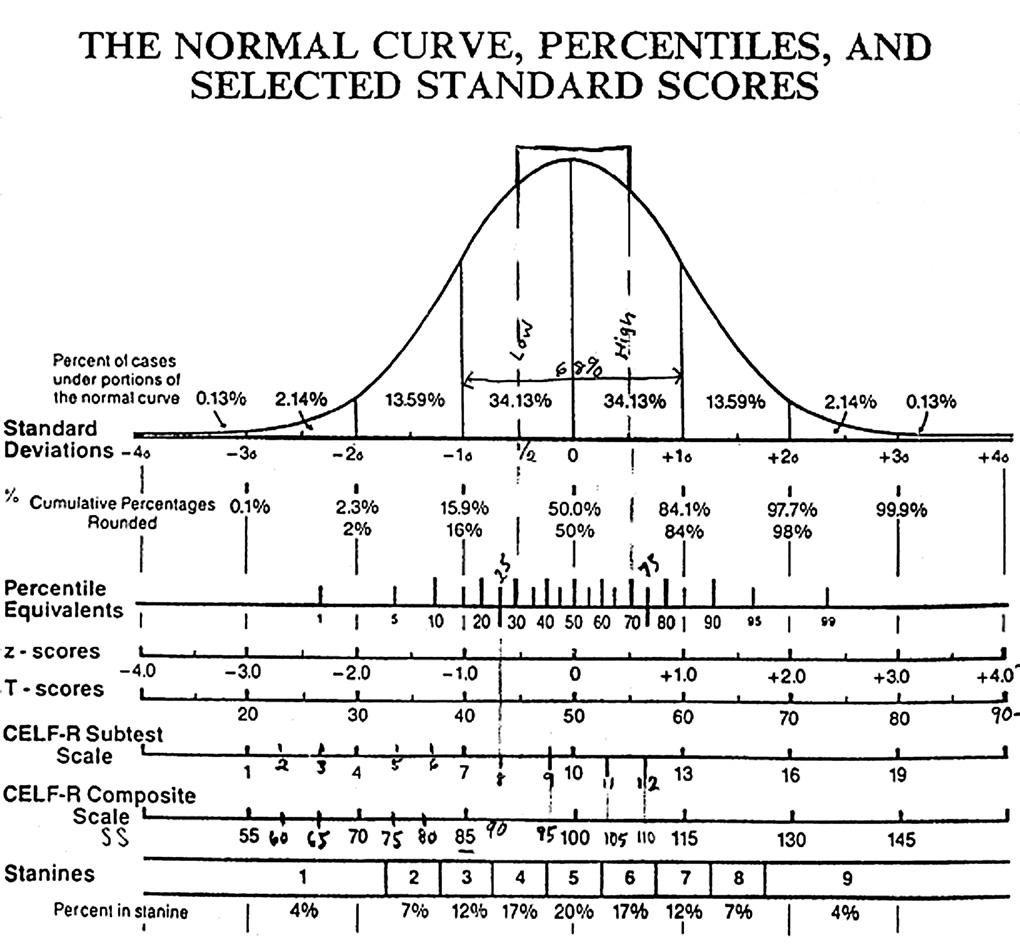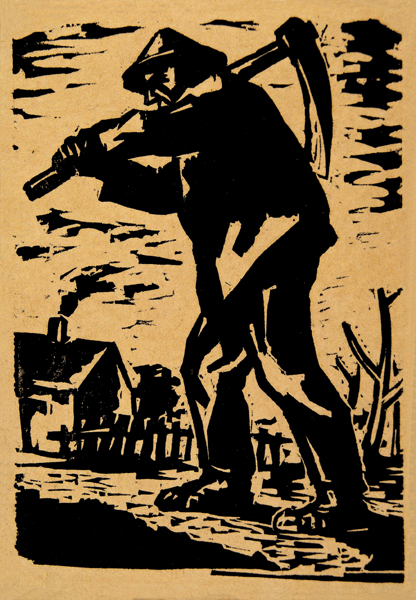
JayMan • October 21, 2015 • 1,200 Words
It seems few understand regression to the mean and how and why it works. Most people (and by most people, I mean most scholars – i.e., the people who should know better) have a vague understanding that it has something to do with IQ. They seem to have the impression it means that the children...
Read More
JayMan • August 27, 2015 • 2,500 Words
The Southern Poverty Law Center's (SPLC) current "Featured Extremist" (their words) is none other than the mild-mannered Henry Harpending of West Hunter. They go into a fair amount of detail about Harpending and his work, but take a look at what they say. Are they actually trying to discredit him (emphasis mine)? Henry Harpending is...
Read More
A synthesis has been forming in the field of human biodiversity. It may be summarized as follows: 1. Human evolution did not end in the Pleistocene or even slow down. In fact, it speeded up with the advent of agriculture 10,000 years ago, when the pace of genetic change rose over a hundred-fold. Humans were...
Read More
What, ultimately, is the basis for morality? In a comment on aprevious post, fellow columnist Fred Reed argued that some things are self-evidently wrong, like torture and murder. No need to invoke the Ten Commandments or any religious tradition. Some things are just wrong. Period. This is a respectable idea with a long lineage. It's...
Read More
In a recent post, Fred Reed asks: The short answer is that any killing, for whatever reason, increases the likelihood of killing for other reasons. One exception is self-defence, but that's not done for pleasure. Another exception is capital punishment, but that, too, is not done for pleasure. More to the point, no single citizen...
Read MoreJayMan • June 29, 2014 • 2,800 Words
In his latest VDARE column, John Derbyshire has written a glowing discussion of yours truly: John Derbyshire On JayMan—A Righteous Jamaican-American | VDARE.COM Well... more on that shortly. That is my thing. A couple of my tweets on the matter shoul
Jayman • March 31, 2014 • 3,700 Words
A vigorous discussion has been triggered by the release of Gregory Clark's The Son Also Rises: Surnames and the History of Social Mobility. In this book, Clark details his work which shows a large transmission of status from generation to generation, all across the world, going back centuries. The discussion has raged on the mode...
Read MoreLuke the Evangelist (source: British Library). In the past, only a minority could read long texts of cursive writing. But many more could read short texts of block writing. The Visual Word Form Area (VWFA) is a specialized part of the brain that helps us recognize written words and letters. If it is subjected to...
Read MoreThis is the first of a series of ebooks. You can access an Epub version here or a PDF here. Below is the foreword. ---------------------------------------------------------------------------------------- Foreword The Burakumin of Japan, the Paekchong of Korea, and the Cagots of France … What do they have in common? All three were despised castes—closed groups of people who...
Read MoreJayMan • December 26, 2013 • 2,500 Words
"Racial Reality" (RR), also known as "Italianthro," has apparently responded to my challenge. He claims to have left a comment to my post, but I didn't see one. I haven't looked in my spam box in a while, so if it ended up there, it may have gotten deleted (spam comments are automatically deleted after...
Read MoreJayMan • July 29, 2013 • 2,900 Words
Continuing my series on the American nations (see also A Tentative Ranking of the Clannishness of the “Founding Fathers”; Flags of the American Nations; Sound Familiar?), I take a look at the Cavaliers. The founders of the U.S. Tidewater and Deep South were people of noble blood that originated primarily from southwestern England, in an...
Read MoreHome sweet home in the Scottish borderlands. This was one of the last regions of Britain to be pacified and brought under State control. People lived in fortified homes where the second floor could be reached only by an external ladder that could be pulled up. The stone walls were up to 3 feet thick....
Read MoreBandit with traditional tattoos (source). In premodern China, who enjoyed the most reproductive success? The thrifty hardworking farmer? Or the local bandit/warlord? In my last post, I asked how well the Clark-Unz model of selection applied to Japan and Korea (Unz, 2013). Let me now ask a more obvious question. How well did it apply...
Read MoreSyngman Rhee in 1905 and later South Korea’s first president (1948-1960). Though born into a rural family of modest means, he was of yangban and even royal lineage (source). Why is mean IQ higher in East Asia than elsewhere? Ron Unz (2013) sees the key cause in a scarcity of land and women that continually...
Read More
“‘How could any man in our village claim that his family had been poor for three generations? If a man is poor, then his son can’t afford to marry; and if his son can’t marry, there can’t be a third generation” China’s poor were continually removed from the gene pool, their places taken by downwardly...
Read MoreJust horsing around? Or is there also a political message? It’s year’s end, and to date I’ve written nothing on the three themes I promised to blog about back in January. One reason was the need to comment on certain unforeseen events, like Phil Rushton’s death and the confirmation that Europeans became white-skinned long after...
Read MoreHomicide rates in England, 1200-2000 (Eisner, 2001) States seek to pacify their territories by monopolizing the use of violence. With each passing generation, violent individuals are ostracized, imprisoned, or executed, their predispositions being thereby selected out of the gene pool. Has this “genetic pacification” made longtime State societies kinder and gentler places to live in?...
Read MoreDid the end of the Middle Ages bring a rapid shift to individualism in English society? Or was something already going on beforehand? For most of human history and prehistory, our lives were based on kinship—economically, socially and even spiritually. Kinship determined who provided whom with the basics of life: food, shelter, and clothing. And...
Read MoreRecent research, such as by historical economist Gregory Clark, suggests that differences in mental and behavioral traits cannot always be ascribed to different reproductive strategies, as Philippe Rushton suggested. There probably will never be a unified theory of human biodiversity … other than the theory of evolution by natural selection. Last March, I was asked...
Read MoreWestern Europe began to overtake the rest of the world long before it established colonial empires in Africa, Asia, and the Americas (source) In Why Nations Fail, economist Daren Acemoglu sees global inequality as a legacy of colonialism. Wherever European settlers were numerous enough, they formed inclusive, democratic societies that aimed for sustainable growth. Wherever...
Read MoreJayMan • April 28, 2012 • 3,100 Words
Edit, 3/13/14 8/24/13: Post updated. See below! This started as an e-mail I wrote to a friend to sum up the important events of the Middle Ages for Europe and the Near East. Then I decided that this was blog post worthy, so here it is: a nice, fairly concise summary of the events of...
Read MoreRelative frequencies of surnames of the rich and the poor (common criminals) 1236-1858. In England, there seems to have been much downward mobility among descendants of the medieval rich and some upward mobility among descendants of the medieval poor (Clark, 2010). H/T to Jason Malloy Henry Harpending (2012) argues that a meritocracy would become a...
Read MoreIn the deer family, genetic variability is greater within some species than between some genera. Does Fst tell us what we think it tells us? At almost any genetic marker (blood types, serum proteins, enzymes, mtDNA, etc.), a typical gene varies much more within than between human populations. And this is true not only for...
Read MoreSt. Bernard of Clairvaux and a nun embrace a bloody crucifix (early 14th century). While co-opting blood lust as a means to strengthen its emotional appeal, Christianity also created a social environment that gradually removed such desires from the population. In the past millennium, some European societies underwent a profound behavioral change. People no longer...
Read MoreCode of Hammurabi. Today, law is based on universality, impartiality, and non-discrimination. Yet, originally, its core principles were the very opposite. A key stage in cultural evolution has been the transition from low-trust to high-trust societies. Originally, the “horizon of trust” encompassed only close kin and long-time friends. Then, in some societies, this horizon progressively...
Read MoreMarket gate, old city of Baku. Until a few centuries ago, markets were highly localized in time and space. Most economic activity took place outside them, either within each household or in long-term reciprocal relations within the community. The political Right typically believes that a market economy will self-generate as long as government gets out...
Read MoreUpper-caste Indians. Clark’s model works poorly in State societies where class divisions are rigid and where different classes operate according to very different rules. In my last post, I discussed Ron Unz’s essay on selection for intelligence in East Asian societies. This paper, as its own author points out, makes the same point that Gregory...
Read More
Children making pillow lace for a home workshop. Germany, 1847. During the early stages of Europe’s market economy, successful entrepreneurs would expand their workforce by having more children. There are several obstacles to our understanding of geographic variation in human mental performance. First, the subject is taboo. When people do discuss it, they often resort...
Read MoreSteven Pinker has an article up on the secular decline in violence (hat tip to Mangan’s): Pinker concludes: “our ancestors were far more violent than we are today. Indeed, violence has been in decline over long stretches of history, and today we are probably living in the most peaceful moment of our species' time on...
Read More